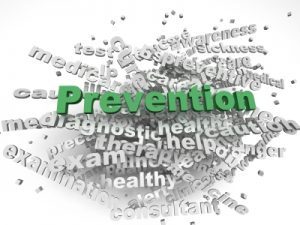Overkill: “An excess of something (such as a quantity or an action) beyond what is required or suitable for a particular purpose.”

Life was simple in the 1950’s. Throughout my long life, I’ve witnessed the evolution of product choices, variety, and quantity. Vehicles, foods, gadgets, electronics, medicine… On the one hand, it’s wonderful to have so many things to choose from. On the other hand, more isn’t necessarily better.
Overkill is stressful; it takes a lot of time and energy to figure out what/where/how to buy something and which is the best value. The learning curve is constant with new updates and inventions to try or buy. Overkill can easily lead to over-spending, over-shopping, over-eating, over-doing, over-treating…Overkill can even kill.
Especially in the medical field. Our medicine cabinet in the 1950’s contained aspirin, Pepto-Bismol, Caladryl, bandaids, a bottle of hydrogen peroxide and a thermometer. We had annual checkups with our GP and eye doctors at their home offices; emergencies in between were handled by a single call and a same-day visit.
Today, the quantity and types of doctors, specialists, tests, medications/treatments are amazing. Obviously, having what is available in medicine is tremendous for our health and wellness needs. The downside, however, is that the excess of so many options with doctors, treatments and healthcare specialties has created complicated health management. And legal ramifications (another topic, another time.)
 ?????????
?????????
Who takes care of coordinating our previous/current day status of doctors and medications? Many people assume that current-day technology does this. Others assume their PCP does this. During a visit with my PCP yesterday, my list of meds was not updated since our visit six months ago. Only one of the four specialists I had seen sent him an update of that visit. It was no surprise to either one of us. Dr. S. added that it’s a now a common problem, and it’s being exacerbated by the increasing number of specialists.
Age brings wisdom. Having lived for 67 years, (42 of them w/ MS), gave me quite an education with doctors and medicine. My own health team grew to include many PCPs, 8+ MD Specialists, P/T & O/T to help just about every part of my body. I can’t count how many times or days I spent in hospitals for myself or other family members.
Who keeps track of my medical management? I do, because the constant change of all variables over time can’t possibly be coordinated by anyone else. If anyone believes that their PCP, insurance, computers, etc. does this, they are mistaken.
I have always kept a journal and made sure every drug, doctor, pharmacist was up-to-date and connected with my current health status. For every new visit and prescription. It’s my responsibility, even if a screw-up happens in our health system (that does a great job of covering their butts).
Another consideration: who do you trust as a backup for your medical management if you get in a situation that you can’t do it on your own?
In a recent blog article, I told the story of my mother. Poor medical management almost killed her. Assisting my stepdad with her care management since January revealed many previous mishaps. During the past couple of years, she had been overmedicated and prescribed several wrong medications. Doctors (i.e., PCP, neurologist, GI specialist….) were not coordinated with her meds and updates; follow-up visits with the team of doctors did not occur. Stepdad is her health care manager; but in some cases, two heads are better than one.
It’s complicated to live nowadays. It’s complicated when sickness befalls us. It’s complicated when we grow old. It’s complicated to die. Crap happens when you least expect it, whether it’s you, your partner, your parents……..
Medicine is complicated. I don’t trust anyone but myself with my medical management. I read every word in every document before I sign it. My husband is my backup.
What about you?
Debbie Petrina
Author of Managing MS
Kindle Unlimited
Moderator, MultipleSclerosis.net







 “Overcoming Fear”
“Overcoming Fear”